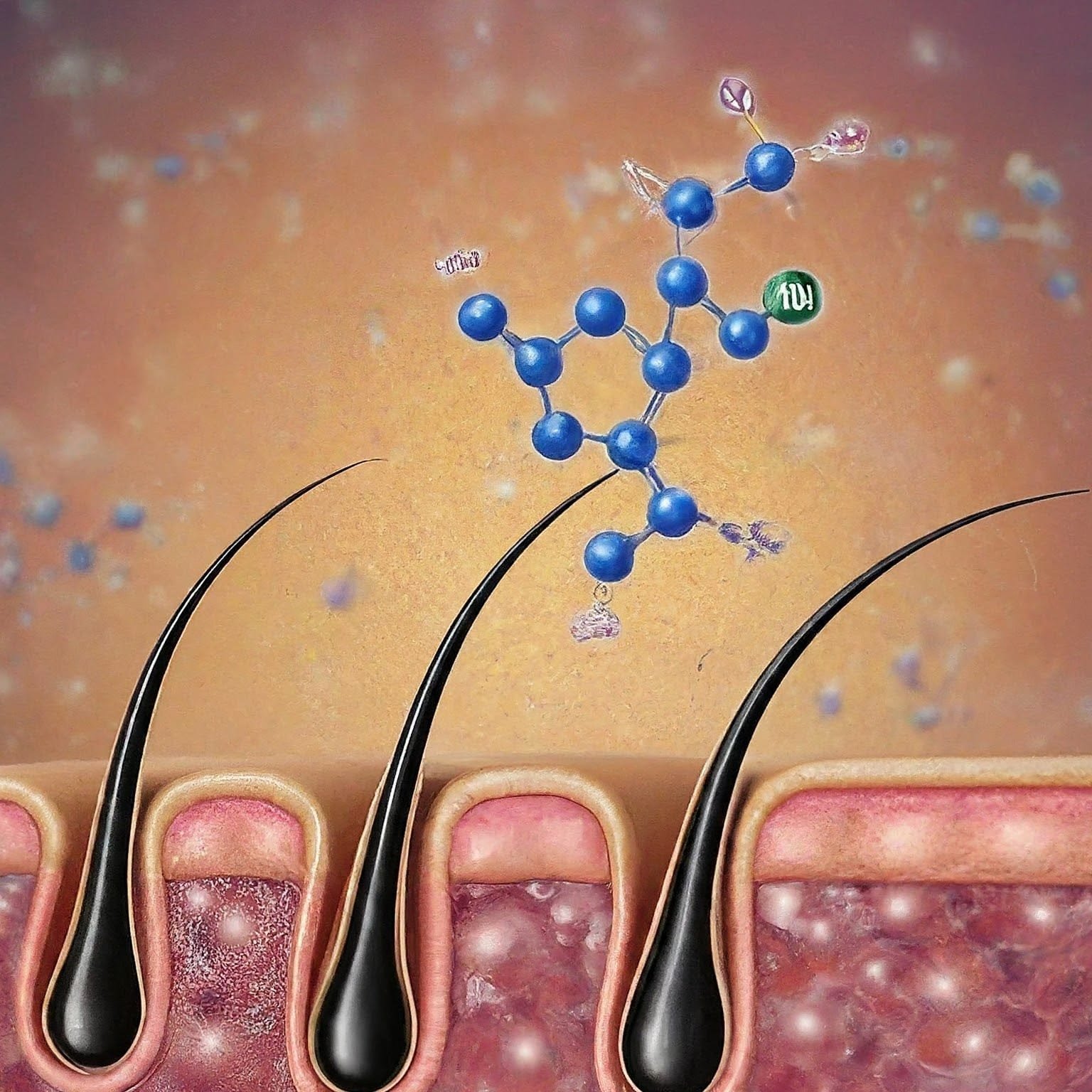Biotin, also known as vitamin B7, is a water-soluble vitamin essential for numerous bodily functions. This nutrient plays a crucial role in metabolism, energy production, and cell growth. While often overlooked, biotin deficiency can lead to various health issues. This article delves into the intricate mechanisms of how biotin works within the human body.
Understanding Biotin: A Brief Overview
Biotin is a coenzyme, meaning it works in conjunction with enzymes to facilitate biochemical reactions. It is found in a variety of foods, including egg yolks, liver, nuts, and seeds. While the human body can produce small amounts of biotin, dietary intake is typically necessary to meet daily requirements.
The Role of Biotin in Metabolism
Biotin is a cornerstone of energy metabolism. It is involved in the breakdown of carbohydrates, fats, and proteins into energy that the body can use. This process is essential for various bodily functions, including muscle contraction, brain function, and maintaining body temperature.
- Carbohydrate Metabolism: Biotin is crucial for converting carbohydrates into glucose, the primary energy source for cells. It plays a pivotal role in the gluconeogenesis pathway, which involves the synthesis of glucose from non-carbohydrate sources.
- Fat Metabolism: Biotin is involved in the breakdown of fatty acids, a process known as beta-oxidation. This process releases energy stored in fat molecules.
- Amino Acid Metabolism: Biotin is essential for the metabolism of amino acids, the building blocks of proteins. It participates in the conversion of amino acids into glucose and fatty acids.
Biotin and its Impact on Cellular Function
Beyond its metabolic role, biotin is essential for cellular health and function.
- DNA Synthesis: Biotin is involved in the process of DNA replication, ensuring accurate genetic information is passed on to new cells.
- Cell Growth and Proliferation: Biotin is necessary for the growth and division of cells, supporting tissue repair and regeneration.
- Gene Expression: Biotin plays a role in regulating gene expression, influencing the production of proteins and other molecules.
Biotin’s Role in Skin, Hair, and Nails
Biotin is often associated with promoting healthy skin, hair, and nails. While the exact mechanisms are not fully understood, several factors contribute to this connection:
- Keratin Production: Biotin is involved in the production of keratin, a structural protein found in hair, nails, and skin. Adequate biotin intake supports the strength and integrity of these tissues.
- Cell Turnover: Biotin supports cell growth and renewal, essential for maintaining healthy skin and hair.
- Fatty Acid Metabolism: Biotin’s role in fat metabolism indirectly influences skin and hair health. Healthy fats are essential for maintaining the barrier function of the skin and providing moisture to the hair.
Biotin Deficiency: Symptoms and Consequences
A biotin deficiency, while rare, can lead to various health problems. Symptoms may include:
- Hair loss
- Skin rash
- Nail changes (brittle, splitting nails)
- Loss of appetite
- Nausea
- Fatigue
- Depression
Severe biotin deficiency can affect neurological function and can be fatal in infants.
Biotin-Rich Foods
To ensure adequate biotin intake, incorporating biotin-rich foods into your diet is essential. Excellent sources of biotin include:
- Egg yolks
- Liver
- Nuts (almonds, peanuts)
- Seeds (sunflower seeds, flaxseeds)
- Soybeans
- Avocado
- Salmon
- Sweet potatoes
Biotin Supplementation: When is it Necessary?
In most cases, a balanced diet provides sufficient biotin. However, certain individuals may benefit from biotin supplementation:
- Pregnant and breastfeeding women: Increased nutrient demands during these periods may require additional biotin.
- Individuals with malabsorption issues: Conditions that affect nutrient absorption, such as Crohn’s disease or celiac disease, can lead to biotin deficiency.
- People on certain medications: Some medications may interfere with biotin absorption.
Before starting any supplement, it’s essential to consult with a healthcare professional to determine if biotin supplementation is necessary and to discuss the appropriate dosage.
Conclusion
Biotin is a vital nutrient that plays a multifaceted role in human health. Its involvement in metabolism, cellular function, and skin, hair, and nail health highlights its importance. While biotin deficiency is uncommon, ensuring adequate intake through a balanced diet or supplementation when necessary is crucial for optimal well-being.

